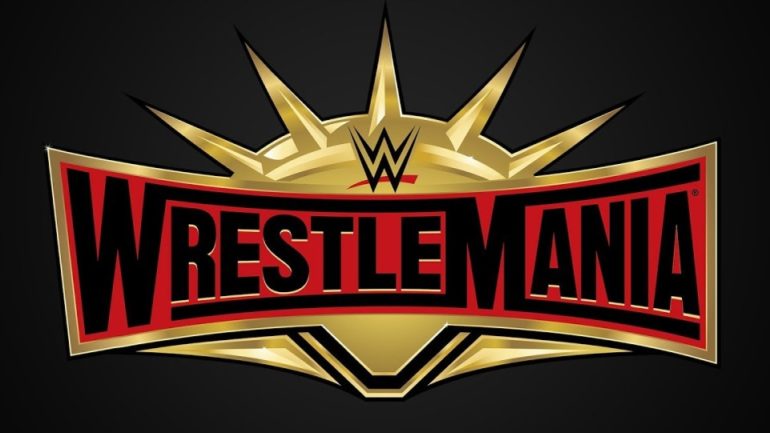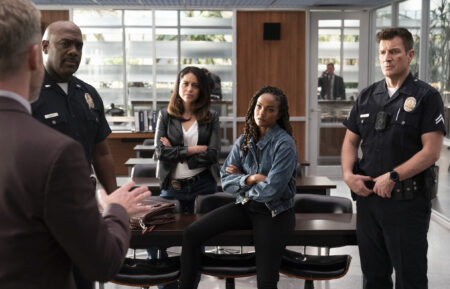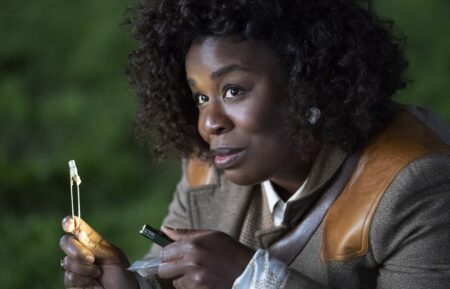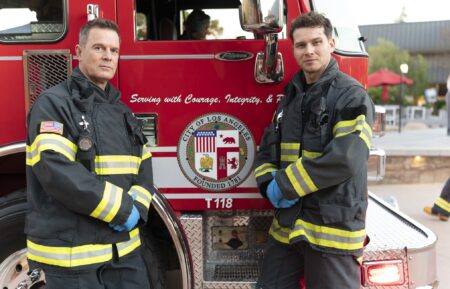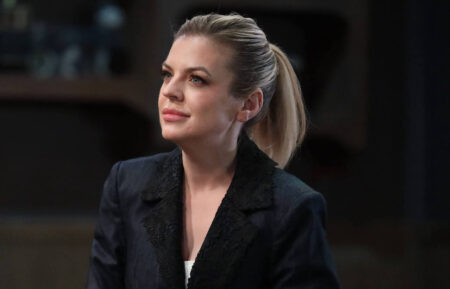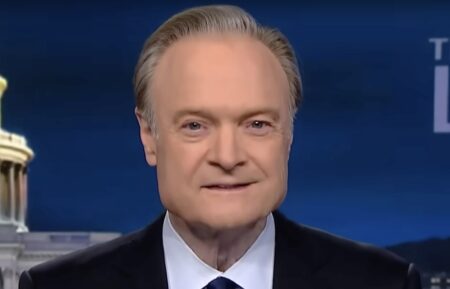Debrah ‘Madusa’ Miceli Talks Vince McMahon, WWE Comeback & Monster Trucks
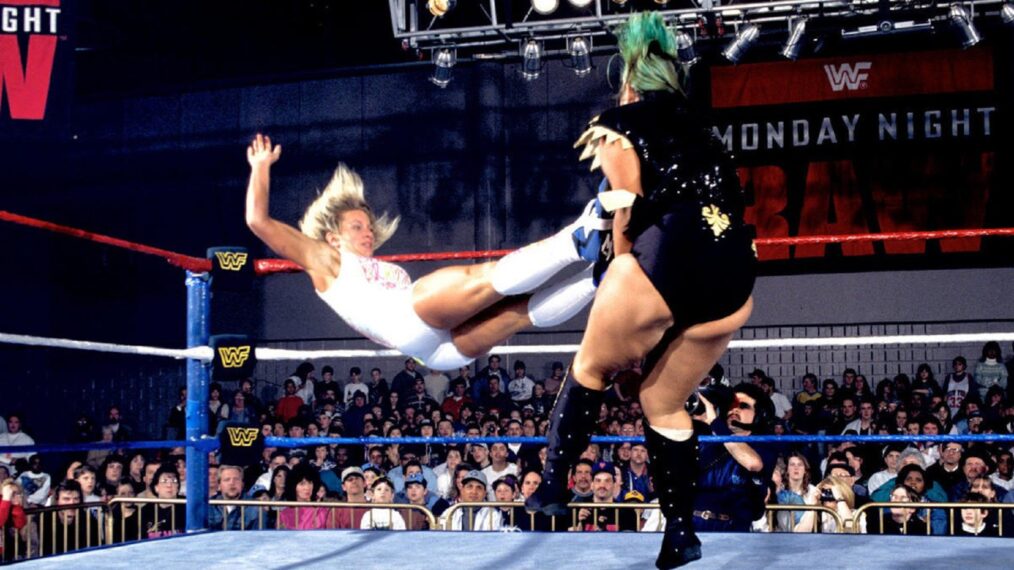
Q&A
These days women in WWE are headlining WrestleMania. But it wasn’t always this way as Debrah ‘Madusa‘ Miceli explains in her new autobiography she wrote with author Greg Oliver called “The Woman Who Would Be King: The Madusa Story.”
Whether it was under the name Madusa or Alundra Blayze, the tough-as-nails star built a Hall of Fame career in pro wrestling during the 1980s and 1990s. The former women’s champion helped break glass ceilings. In the process, she created a brand and helped open doors for those who came in future generations.
Then after finding success in one male-dominated industry, Madusa jumped into another, driving monster trucks. The “Queen of Carnage” would go on to become a two-time Monster Jam champ and bring new fans to the unique world of motorsports. Here during Women’s History Month, the trailblazer reflects on her journey and the changes she helped bring.
You talk publicly in the book about your tough upbringing and the adversity you faced throughout your career. Was it therapeutic to get it this all out there?
Debrah Miceli: I don’t know if the word therapeutic or relief or any of that is suitable. It is worth mentioning. I feel that I’ve been stifled for so long in both careers. Basically in the entertainment industry and a lot of things in life, people don’t talk because of the fear of losing what they’ve built or have…Whenever you are up-and-coming in any industry, you bite your tongue or lip and you keep quiet. They don’t say anything because of what they have and what they earn themselves and fear losing it. I feel writing this book will help others that are lost and contemplating doing what is right. We are in a day and age where it is more acceptable to speak up and come forward. But there are still repercussions. It’s always good to have backups. That’s why I‘ve had that fight or flight and have backups because I always knew my days were numbered. You can never expect to be on top and have a very loud voice most times.
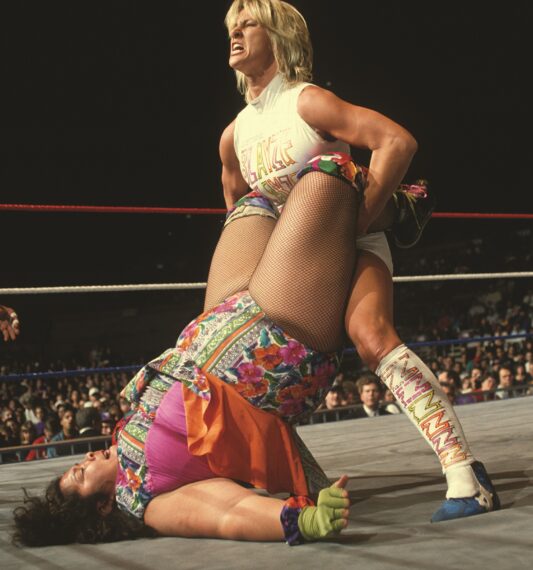
Alundra Blayze
An overarching theme was you knew your worth and didn’t compromise your beliefs for an easy payday. For example, you talk about how you turned down returning to WWE in 1998 because you saw the writing on the wall of what possibly working with Sable would mean. You open up about Playboy when you decided not to give them the authorization to run photos.
Peeling back the onion was trying at times…As things carried through and the opportunities that came up, the quick fixes of the money I could have made by posing for Playboy and getting that six-digit income and what it could have done for me instead of being dirt poor. It was a choice of keeping my integrity intact and keeping who I was and what I believed in. It’s a very hard decision because you have a choice of feeding your family or finding another route. And those are the routes I chose, and it was difficult.
There was a certain perception for women in pro wrestling back in the “Attitude Era.” You speak about wrestler Jerry Lawler’s often sexist commentary bothered you. How do you look at that time now?
It is very difficult to try to explain eras if you haven’t lived them. With people today and kids growing up in today’s world hearing that stuff that was said or told or done is almost unrecognizable. It would never fly today. We are in a different world and culture and upbringing. I’m not defending that era or the people though but we are a product of our environment. It’s about decision-making and choosing. We all have a choice. Knowing how to make a decision. I made those choices because I knew what was right and wrong and what was right for me. At that time that is what they chose. Not defending Lawler again, but I am saying in that era he was probably told what to do but that was his personality ….When you are forced up against a machine, he had a choice and there were other commentators at the time that chose not to be that way.
You tell stories of what shady promoters tried with you. When it comes to Vince McMahon, how would you describe your relationship over the years working for him?
I was always a Vince girl, meaning I was a company girl. Meaning I was the one he could count on as far as showing up, being on time, and having badass matches…At the same time, I remember getting ready to go to a gig for WWE and getting a knock at the door and getting a FedEx delivered saying you’re not needed anymore. Vince never tried any lascivious acts toward me at all. He was always good to me, but my departure sucked ass because I was the chosen one, and feel that any company that chooses you to be a champion is a reflection of how they feel about you. It was an honor to be the champion.
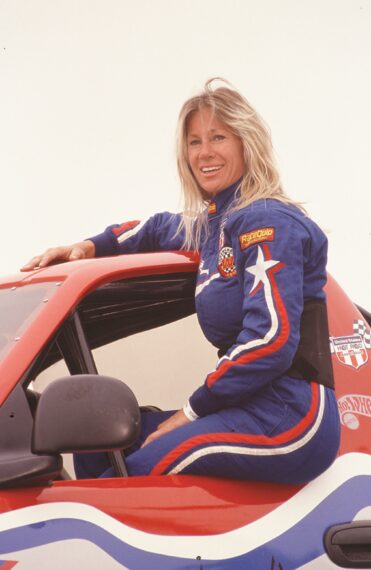
Madusa
By the same token, you shine a light on how Monster Jam was treating the drivers during your time. You fought hard for everything from catering to having your own Hot Wheels Madusa truck. What kind of reaction have you gotten from revisiting this aspect of your career?
I’m not writing about Monster Jam, but writing about my experience with Monster Jam. I’m talking about my own experience and job. I’m not here to defame anyone. It’s not about them. It’s not about WWE. It’s about me. It’s my story. I do want to voice that [Monster Jam] is a great opportunity because it’s a better place now. You hope. I truly believe there are good people there, even in WWE and all around. It takes that paver to do that. It wasn’t just me, but other people as well. It has to be that strong, loud voice person that when they walk, they shake the ground. I’ve always been that person.
You’re approaching 60 and said you’re in great shape. You never technically lost the WWE women’s championship in 1995. We’re seeing Sting and others competing at this age on the male side. I think if anyone deserves one last match or run it’s you.
I would love to have a retirement match. I’m not dissing any era, but there are other eras before the “Attitude Era.” There is still a woman under WWE legend’s contract that they can do something with. But they chose not to. A retirement match would be wonderful. We see Trish Stratus and Lita all the time. I think those girls are great. But that’s all we see. I’m not sick of them. I’m just sick of seeing just them. I have high respect for those two women. But damn it, if it was them at 60, they would be pounding the pavement just as hard as I am.
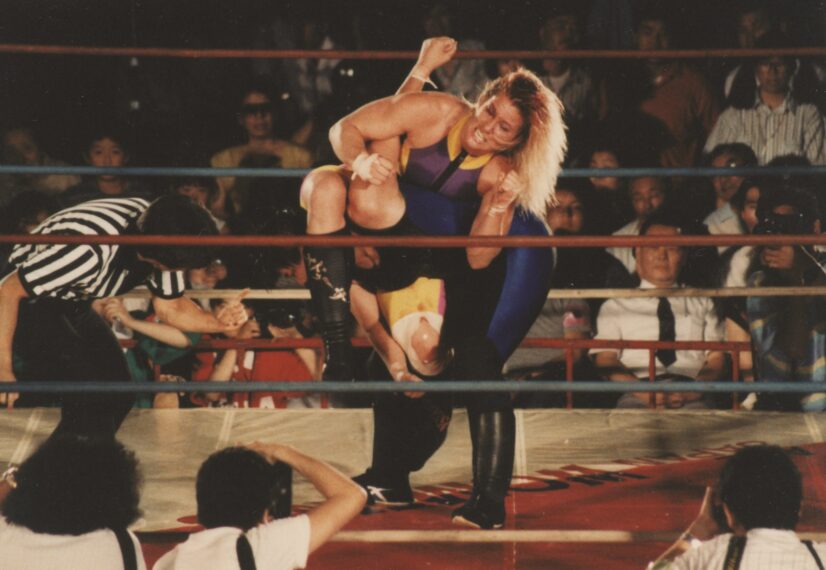
Madusa
Who would be your dream opponent?
It would have to be somebody I can have a great match with. That if I bump my head and forgot something they can carry the match. Anything can happen. It could be a Nattie, Beth Phoenix, a Rhea Ripley. Everyone wants to see Charlotte Flair and Madusa. I still think that would be phenomenal.
“The Woman Who Would Be King: The Madusa Story” is available now.
Catch Madusa and Alundra Blayze matches on Peacock

